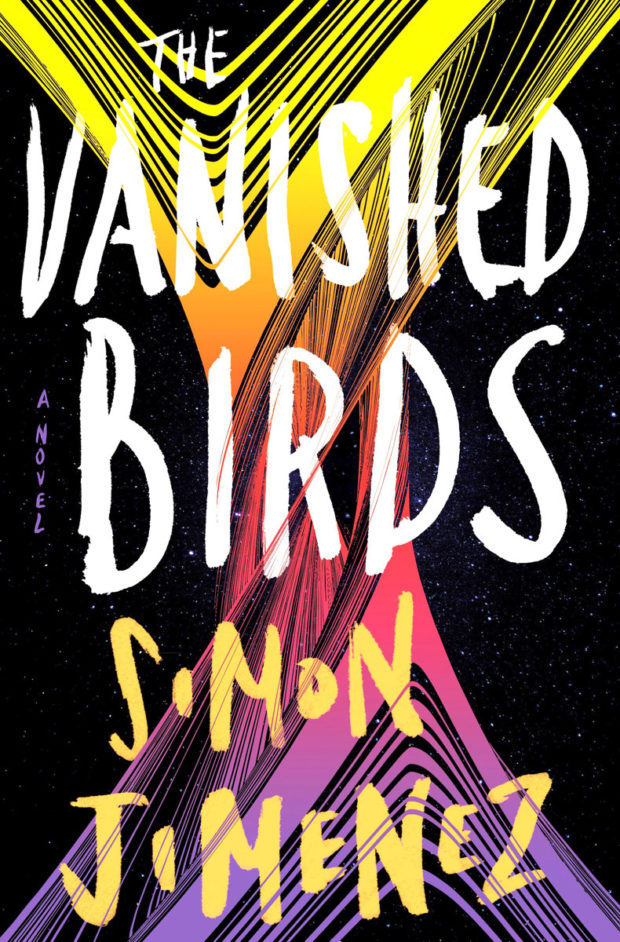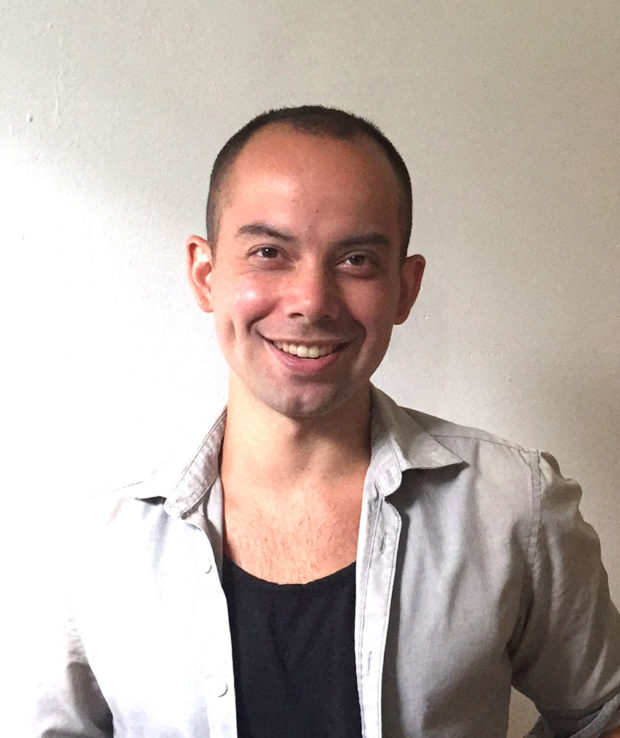Fil-Am’s debut sci-fi novel has imprint of his heritage

“The Vanished Birds” is a sci-fi novel written by Fil-Am author Simon Jimenez that was released on January 14. PENGUIN RANDOM HOUSE
LOS ANGELES — Simon Jimenez grew up devouring sci-fi and fantasy books. Some of his favorites were “The Lion, the Witch and the Wardrobe” by C.S. Lewis and the Redwall series by Brian Jacques.
But as much as he loved the genre, he was frustrated that none of the novels he read reflected his experience as a gay, non-white male.
“I love science fiction, and wanted to see more people like me being active and necessary characters in science fiction stories,” Jimenez told Inquirer.net in an email.
It’s something he’s sought to change with his debut novel, “The Vanished Birds,” which was released on January 14. It tells the story of a mysterious boy believed to have special gifts who finds his way under the care of a spaceship captain. The two of them find a home in each other as they travel through space together, but find they face the risk of being torn apart because there are others who also want the boy.
Writing a book was something Jimenez, who is half Canadian and half Filipino, always wanted to do, he said. What it would be about and the genre changed over the years, but the one thing that remained the same was that the character at the center of events would be a non-stereotypical gay male protagonist.

Fil-Am author Simon Jimenez began working on his debut novel, “The Vanished Birds,” in 2016 while he was in grad school at Emerson College. PENGUIN RANDOM HOUSE
Identity is a central concern in the story, Jimenez noted, but he said that’s not the only facet of his that’s reflected in his novel.
The narrative is rich with characters of varying ethnic backgrounds, perspectives and sexualities, and he said each one is representative of some aspect of himself.
He shared that he resonates most with the third lead character, a gay scientist who designed spaceships that enabled humanity to escape from a dying earth, for the reason that she chooses work over love.
“Writing a novel is lonely business,” he said. “I don’t regret it, but every day I am aware of the things I let pass as I was in my room writing.”
Jimenez’s cultural heritage also influenced the storyline of his book, though nothing was taken directly or consciously from his personal history, he said.
Born and raised in an affluent part of the Washington, D.C. area, Jimenez described his childhood as a privileged one. He said he and his siblings ate American food at school for lunch and Filipino food for dinner, and that his family used to travel to the Philippines every year. (He never learned Tagalog as a child, to his “everlasting regret,” but said he will one day.)
Yet when it comes to understanding how much of his identity is rooted in his Filipino ethnicity, it’s something Jimenez said he has wrestled with his entire life.
“My identity, such as it is, is very much tied to my Filipino heritage, as it is my status as a half-white American from a privileged background, as it is my sexuality, in a way similar to how water is composed of both hydrogen and oxygen and cannot be water without the two,” he said.
“There is no one detail about myself that I can point to and say, ‘That came from my Filipino side’ other than for my ability to tan in the sun without burning.”
Still, he credits his Filipino heritage for influencing his novel because it has made him the person he is. Growing up as a mixed-race child, he said he’s experienced what it’s like to live a double life in the realms of home and school, and with his parents and with himself.
What it means to be from a place and what makes a place home are also questions that surface throughout “The Vanished Birds.”
“I think if anything, my lifelong feeling of being caught between two worlds—of not quite belonging to any given place or people—was a pretty direct emotional inspiration for this story, which is about travel, and finding oneself in the places between societies,” he said.

